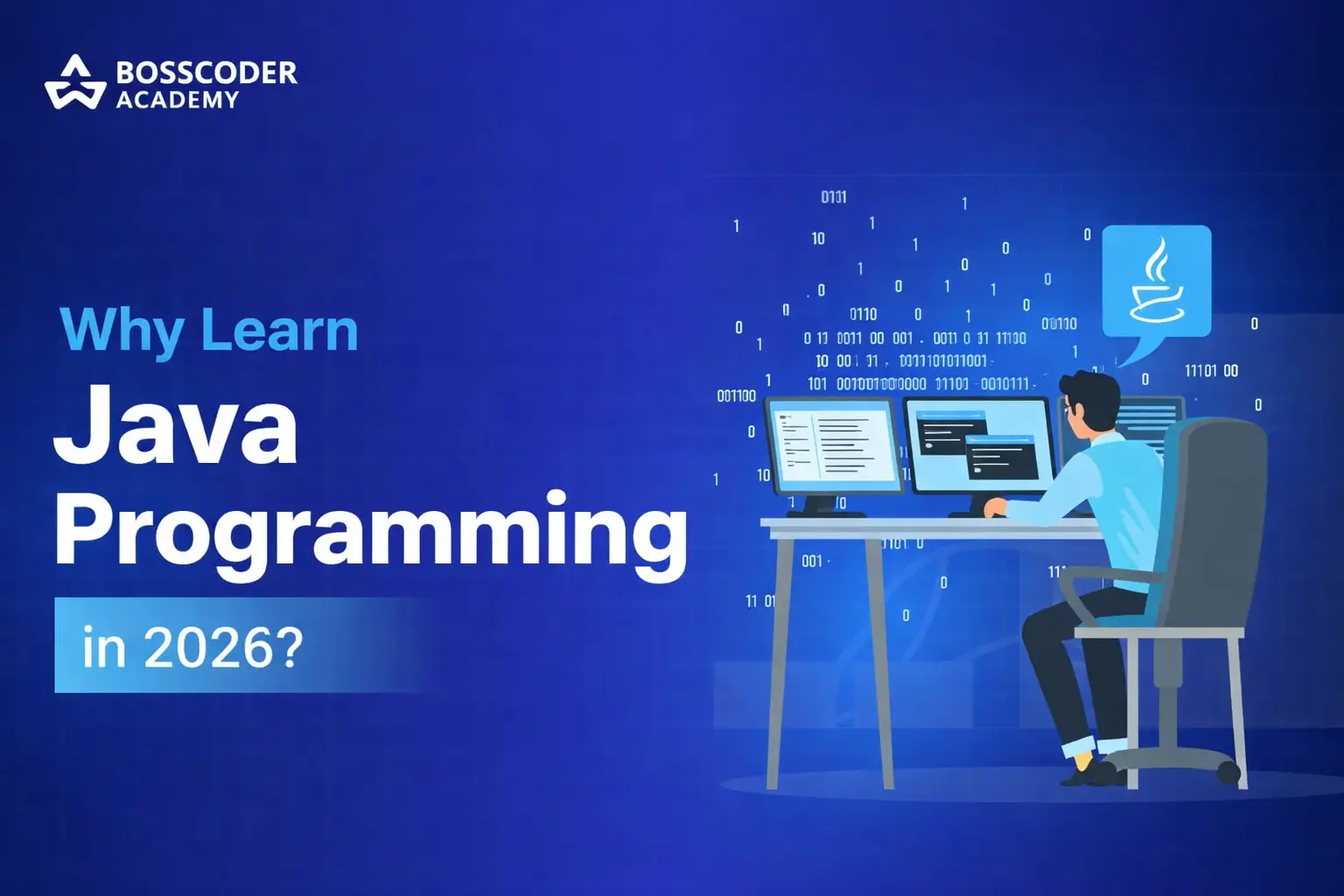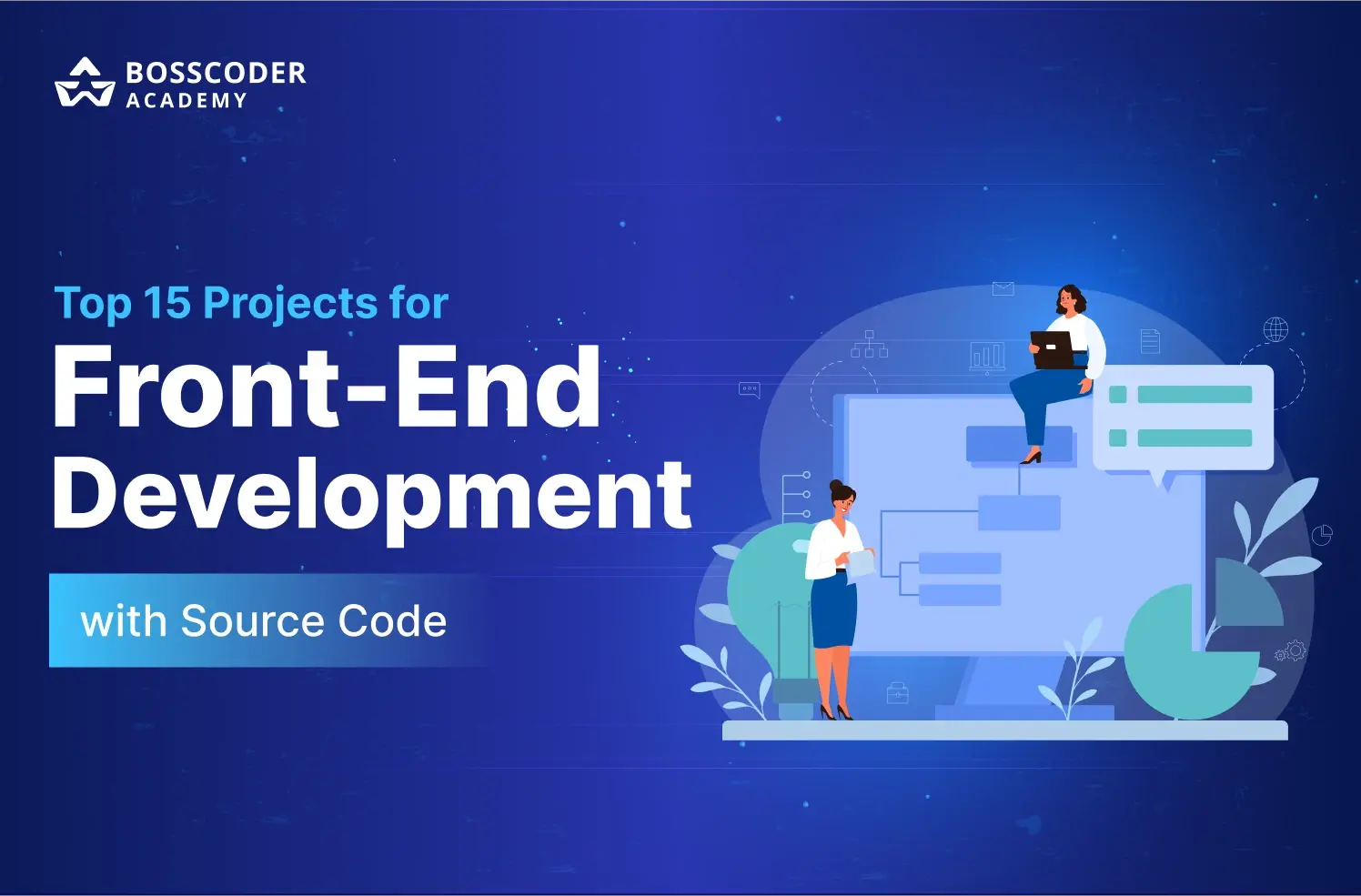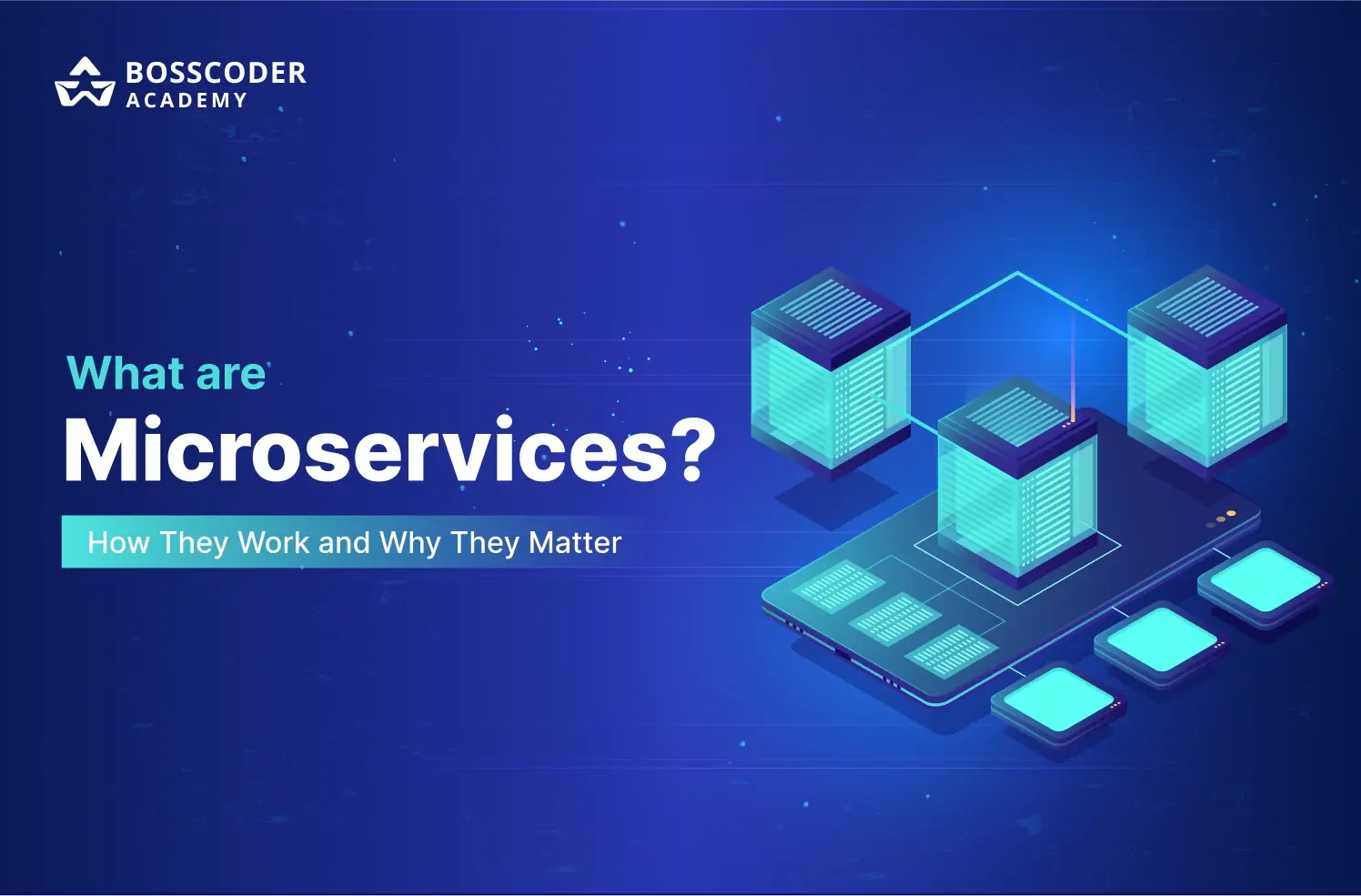Imagine a programming language that allows you to build apps, create websites, and even handle huge amounts of data. That’s Java. It’s been around since 1995, and even in 2026, it’s still one of the most popular and useful languages out there.
So, whether you’re a student who's getting into coding or a professional looking to grow your tech career, learning Java can be a smart move.
Java is used in all kinds of projects, including Android apps, websites, cloud systems, and large business software. It’s reliable, flexible, and in high demand. Learning Java can open the door to many job opportunities and give you skills that last. In this blog, we’ll explore what Java is used for, why it’s still relevant today, what careers it can lead to, and how you can start learning it with ease.
Why Java Matters in 2026?
Java isn’t just another coding language; it’s the foundation that runs millions of applications worldwide, powering everything from Android apps to large-scale banking systems. Here’s why it’s still a big deal:
- Used in Big Business Systems: Java is behind many things you use daily. From banking apps to online shopping websites, it keeps systems running smoothly. Its strength lies in handling complex tasks, making it a favorite for businesses.
- Android Apps Development: If you’ve ever used an Android phone, you’ve interacted with Java. It’s the backbone of most Android apps, helping developers create games, tools, and more. Even with newer languages like Kotlin, Java remains a key player.
- Big Data and Cloud Champion: Companies dealing with huge amounts of data, like Netflix or Amazon, depend on Java. Tools like Hadoop and Kafka, built with Java, process information at lightning speed. Plus, Java works great in cloud systems, making it essential for modern tech.
- Works Everywhere: Java’s “write once, run anywhere” motto means your code works on any device, Windows, Mac, or Linux, without extra tweaks. This flexibility saves time and effort.
Why You Should Learn Java in 2026?
Wondering why you should pick Java programming over other languages? Here are some simple yet powerful reasons:

- High Demand for Jobs: Java developers are in high demand globally. Companies of all sizes, from startups to large businesses, are always looking for Java developers. Every day, job portals such as Indeed and LinkedIn list thousands of available Java positions.
- Perfect for Beginners: Java's simple structure and basic principles make it simple to learn, even if you've never coded before. It teaches you the fundamentals of programming, which prepares you for success in other languages later.
- Endless Possibilities: With Java, you can create nearly anything, including mobile applications, websites, games, and even smart gadgets. Its huge collection of tools and libraries allows you to experiment with diverse projects.
- Supportive Community: Java has a large global community of developers who are eager to help. If you're stuck on a topic or need guidance, forums, tutorials, and platforms such as Stack Overflow can help.
- Future-Proof Skill: Java continues growing with frequent upgrades, guaranteeing that it remains relevant. Its long history shows that it isn't going anywhere soon, making it a secure pick for your career.
- Rich Ecosystem: The language has a wide collection of tools, frameworks, and APIs that enable developers to build nearly any type of application.
If you're confused as to which programming language to choose, then a comparison of Java with a few trendy languages might help you out.
Java vs Other Programming Languages
With so many programming languages out there, why choose Java? Let’s compare it to a few popular ones:
- Java vs Python: While Python excels at simplicity and quick prototyping, Java excels in terms of performance, scalability, and the capacity to run large-scale business systems.
- Java vs. Kotlin: Kotlin is newer and simpler for Android apps, but Java’s widespread use means most existing projects still rely on it. Knowing Java gives you an edge in understanding older code.
- Java vs. C++: C++ is strong, yet difficult to learn. Java simplifies things with automated memory management, allowing you to spend more time developing rather than repairing issues.
- Java vs. JavaScript: Despite their similar names, JavaScript is mostly used for web design, whereas Java develops full-fledged programs and back-end systems. Java's adaptability extends beyond its core functionality.
Java’s balance of power, simplicity, and popularity makes it stand out in 2026.
Career Paths with Java
Learning Java isn’t just about coding, it’s about opening exciting career opportunities. Here are some roles you could land:

- Java Developer: Create and manage applications for businesses in fields such as banking, healthcare, and retail. You'll be writing code, fixing bugs, and developing new features.
- Android Application Developer: Create apps for millions of Android users, including fitness trackers and social networking sites.
- Web Developer: Uses Java to create the back end of websites, ensuring that they perform smoothly and securely.
- Big Data Specialist: Use big data tools such as Hadoop to analyse data and help companies in making informed decisions.
- Cloud Engineer: Create systems that store and analyze data online using Java's cloud-friendly capabilities.
These positions provide competitive salaries and potential for advancement in almost every industry.

Now that you know the differences & the career opportunities that Java can provide you, let's understand how you can start learning Java.
How to Get Started With Java Programming Language in 2026?
Ready to learn Java? Here’s how to begin:
- Learn the Basics First: Start with the core concepts like variables, loops, conditionals, and how object-oriented programming works. There are plenty of beginner-friendly tutorials and videos online to help you learn step by step.
- Write Code Often: Don’t just watch or read; actually code. Build small things like a number guesser or a task manager. Daily practice builds real skill.
- Level Up with a Course: Once you’ve got the basics, consider a course from an academy like Bosscoder Academy's Transformers course. It's geared toward those with a bit of experience who want to deepen their skills and start building real-world apps.
- Build Projects: Once you're comfortable, start building. Personal Java projects or open-source contributions will help you learn faster and show what you can do.
- Connect with Others: Find a Java community online. Forums, Discord servers, or Reddit threads are great for getting help, sharing ideas, and staying motivated.
How Can Bosscoder Support Your Journey in Java?
At Bosscoder Academy, we don’t just teach programming we train you to become a complete Software Development Engineer (SDE).
Our SDE Program covers everything you need to succeed:
- DSA & Problem Solving for cracking top tech interviews
- System Design to build scalable, real-world systems
- Full-Stack Development with modern tools and frameworks
- Hands-on Projects to strengthen your portfolio
- Placement Support with mentorship, mock interviews, and referrals
We focus on real skills—not just syntax. Whether you're working with Java, Python, or any other language, our program helps you build the mindset and practical expertise companies are hiring for.
Join Bosscoder and start building your tech career the right way.
Conclusion
In 2026, Java is a strong choice for anybody looking to get into programming. Its use in applications, websites, and data systems shows its exceptional adaptability. Learning Java prepares you for success, whether you want to work in a high-paying IT field or simply create creative projects.
Java isn't just surviving; it's growing, thanks to a friendly community, a wide range of tools, and frequent upgrades. Take the first step now with Bosscoder Academy and open up a world of coding options. Start learning Java today and create your future in technology!
FAQs
Q1. Is Java still worth learning in 2026?
Answer: Yes! Java is widely used in industries like finance, mobile apps, and big data. Its demand ensures great job opportunities and long-term value.
Q2. Is Java good for beginners?
Answer: Absolutely. Java's clear structure and beginner-friendly resources make it a great starting point for new coders.
Q3. How long does it take to learn Java?
Answer: With regular practice, you can learn the basics in 3-6 months. Mastering it depends on how much you practice and the projects you tackle.
Q4. What careers can I pursue with Java skills?
Answer: With Java skills, you can pursue careers as a Java Developer, Android Application Developer, Web Developer, Big Data Specialist, or Cloud Engineer across virtually every industry.
Q5. Is Java difficult to learn compared to other programming languages?
Answer: Java has a moderate learning curve. While not as simple as Python for absolute beginners, Java is more structured and easier to learn than C++. Its object-oriented approach teaches fundamental programming concepts that transfer to other languages.
Q6. Why is Java still popular after nearly 30 years?
Answer: Java remains popular due to its reliability, performance with large-scale systems, regular updates, robust ecosystem of tools and frameworks, and the massive community support that helps it evolve with technology trends.









